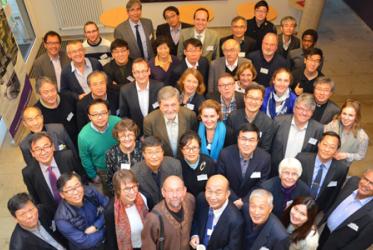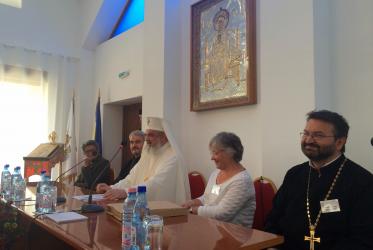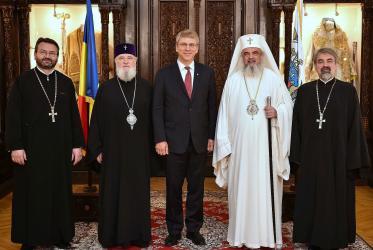Displaying 161 - 180 of 205
16 February 2016
Fleeing from – rather than to – a place
10 February 2016
Symposium focuses on religion, violence, extremism
04 February 2016
Jürgen Moltmann leads ecumenical reflections in Geneva
14 January 2016
Peace cannot be done by bullets, just by encounters
10 December 2015
WCC urges responsibility for and support to the refugees in Europe
04 September 2015









